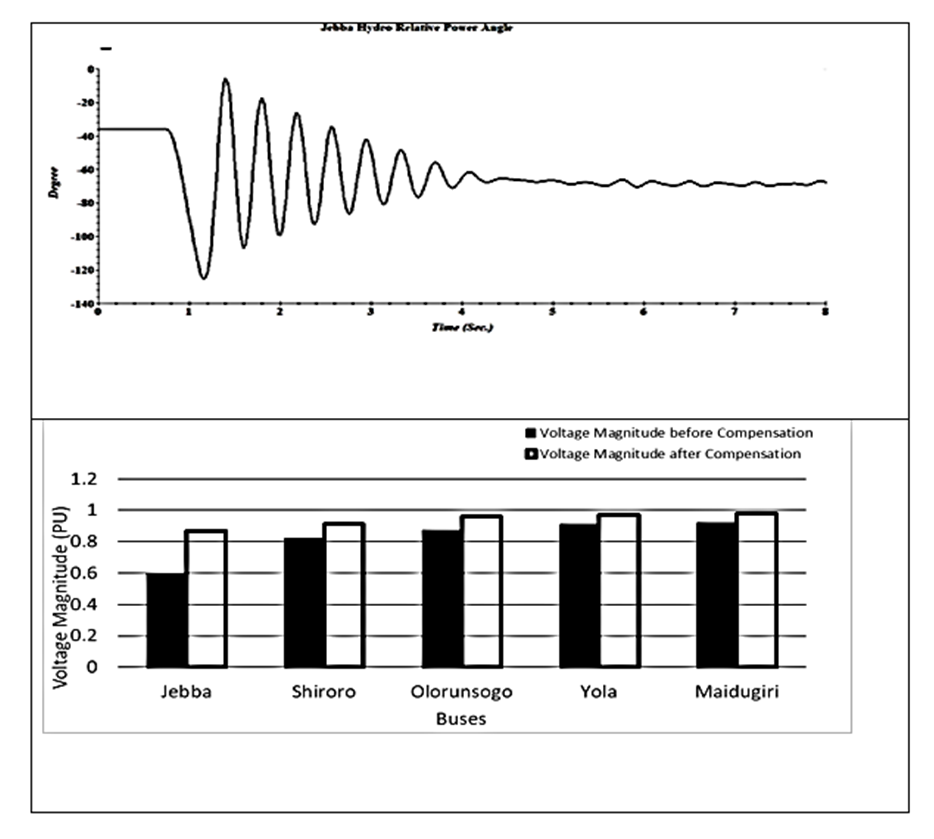Voltage Stability Assessment of Nigeria 330 kV Power Grid: A Critical Bus Perspective
Keywords:
voltage stability, power grid, critical buses, reactive power compensation, transient stability analysisAbstract
Voltage stability issues within Nigeria's 330 kV power grid pose significant risks to the reliability and efficiency of the power supply, hence, there is the need for urgent investigation. This research aims to assess the voltage stability of Nigeria's 330 kV Power grid with specific objectives viz; identifying critical buses and branches, assessing the effect of shunt faults on voltage stability and implementing reactive power compensation to stabilize bus voltages. A fast decoupled load flow technique was utilized to analyze the 330 kV Nigerian power system and obtain system losses alongside locating critical buses. With the aid of ETAP 12.0 software the network was modelled and shunt faults were introduced for transient studies. This provided a base to evaluate voltage stability. VAr sources were integrated to determine their effects on bus voltages and transient stability. The findings indicated that the Jebba Hydro, Shiroro Hydro, and Olorunsogo gas buses were overloaded, while the Yola and Maiduguri buses faced Undervoltage issues. The transient stability analysis demonstrated that VAr compensation effectively restored voltage stability at the critical buses. This research offers proactive strategies to ensure voltage stability in Nigeria's 330 kV power grid, thereby enhancing the reliability and efficiency of power supply


